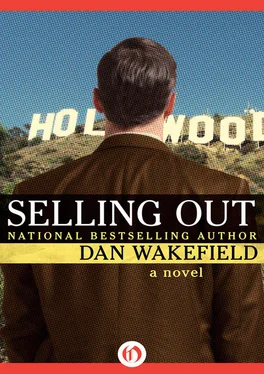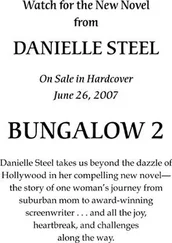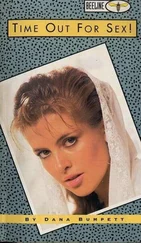“You into reggae?” he asked, as a stereophonic system that would have broken any champagne glass blasted out a sultry, tropical rhythm. In his overall pain, Perry was at least thankful that the sound negated any need or possibility for even small talk, much less extended conversation.
There was also little opportunity at the Polo Lounge, since Mellis was almost constantly on his feet, making the rounds of friends and acquaintances at the tables, keeping up a rapid-fire chatter with others who stopped by when he was back at his own table, gobbling hotcakes, eggs, and sausage with the gusto of a kid at summer camp. Perry kept his head low and managed to get down most of a bowl of cold cereal. He remembered Margo’s advice and was hardly tempted by the omelettes, but also avoided the fresh fruit because it was papaya today and the name itself sounded entirely too exotic for his condition. The cereal seemed to settle all right in his stomach, and that gave him hope that he would live through the day, if he didn’t have to undergo any great exertions of mind, body, or emotion.
“You ready to knock ’em dead?” Archer asked as they roared toward network headquarters in his sleek sports car. The sound of the powerful engine throbbed in Perry’s head, but at least Mellis had removed the reggae tape from the deck, which was some relief.
“I just got a little jet lag, I guess,” Perry said, managing a feeble smile. “Otherwise I think I’m OK.”
“Terrific!” Archer exclaimed, shoving in a new tape. “We really want to blitz ’em!”
“Oh? I didn’t think this meeting was so important,” Perry said with a wince.
“This is the biggie! This is when we sell ’em on it!”
Suddenly Beethoven’s Ninth Symphony was exploding in Perry’s eardrums.
“You said you sold it to the guy in New York!” Perry shouted over the music.
“I did—now we have to sell it to his West Coast people.”
Perry bolted upright, knocking his head against the bubble top of the sports car.
“For God sake, man—you told me this meeting was just a formality!”
“In an hour, it will be. They’re going to love it.”
Perry forgot the pain in his head. He wondered if he had enough strength to strangle this madman.
“What if they don’t?” he bellowed. “What if they don’t like it at all, and you’ve dragged me and Jane all the way out here for nothing, and I’ve told everyone I’m getting paid to write a television script?”
“Speaking of the script,” Mellis said calmly, “have you worked out any more of a plot?”
“No! I thought that’s what you and I were going to do—together! I was waiting till we both sat down to work it out!”
“Terrific! Let’s go at it right now.”
“Can’t we wait till after this meeting?”
“ Amigo , that’s what the meeting’s about .”
“Holy Mother of God.”
There was no story. Oh, there was the short story of Perry’s that Archer had bought the rights to make into the classiest, and at the same time, most popular series in the annals of television history, but it wasn’t a story with a plot, it was simply a slice of life—type sketch, a brief scene from a youthful marriage. The story, “Burden of Innocence,” had been selected from the O. Henry Prize collection two years previously, but its merits were more literary than dramatic, its success resulting from an evocation of mood and atmosphere, an incisive rendering of character, rather than any development of plot. Mellis had frankly explained to Perry that the story and its two appealing young characters in conflict would simply serve as a launching pad for the series, that the hour pilot script would have to be a fully developed dramatization with beginning, middle, and end.
“You mean these network people expect us to tell them the story for the pilot and we don’t even have one?” Perry demanded. “Is that what you’re telling me?”
“We don’t have one now , this mo ment,” Mellis said imperturbably, “but we aren’t even there yet.”
Perry stared at the dashboard, trying to focus, to pull his fragmented mind together. Yet all he could think of was James Bond. Maybe one of the dashboard buttons activated a device that would propel the car’s cockpit back to real life, or at least to the right time zone.
“How can we have a meeting about a story if we don’t have a story?” Perry asked, vaguely wondering if he was repeating himself. “They’ll have to kick us out. I won’t blame them.”
Archer yawned.
“No way,” he said. “They’re going to be very impressed, meeting a prize-winning author from the East.”
“The East ? My God. You make it sound like I’m from Baghdad.”
“Tell me, have you had any thoughts about the title?”
Perry blinked, fighting off a sense that the horizon was tilting. He pressed the thumb and fingers of his right hand to his forehead as hard as he could.
“The title?” he asked. “The title is the one thing we do have. ‘Burden of Innocence.’ That’s the title.”
“That’s the title of the short story . I’m talking about the title for television .”
“I thought you liked the title.”
“I love it! ‘Burden of Innocence’ has a classic ring to it. A real reverberation. Brings to mind the masters—Chekhov, Turgenev. But it doesn’t work for television.”
Perry cringed.
“Wait,” he said. “Didn’t you want something literary? Bring a little class to prime time? Wasn’t that the point, sort of?”
“That’s not at issue. The point is the title’s a downer, in terms of audience gut reaction. ‘Burden’ is heavy, weighs you down. It’s something to be avoided. People don’t want to turn on a show that’s going to be a burden.”
Perry forced himself to take a deep breath, instead of screaming. He leaned back in his seat and closed his eyes. It was almost lunchtime at home. In Haviland. He could be sitting at the kitchen table sipping some good hot coffee while Jane warmed up some stew for them, perhaps pulled some fresh-baked bread from the oven. Maybe they’d have a nice glass of red with it, and watch the snow fall outside the window. The wood stove would make things warm and cozy. Instead he was hurtling through some mountains with a jive-ass hustler on the way to try to shuck some unscrupulous television hucksters. This whole thing was a stupid farce, a waste of life’s precious moments.
“So what about a title?” Archer asked. “Something sharp, pithy. But true to the story.”
Perry sighed, and opened his eyes. As long as he was trapped in this silly game he might as well be a sport and try to play.
“How about just plain ‘Innocence’? That has some mystery, some romance. Don’t you think?”
Mellis lifted his right hand from the wheel and pointed his thumb straight down as they hurtled around a curve.
“Too soft. A real yawn. You’d have to juxtapose it with something opposite, a shocker—like ‘Rape of Innocence.’”
Perry bolted upright in his seat.
“Damn you, Mellis! I’m not having anything to do with some cheap exploitation title!”
His voice boomed over Beethoven’s Ninth. The righteous indignation surging through him was making him feel better, giving him strength.
Mellis patted him on the knee, then shifted into low as the car screeched down a new twist in the road.
“Relax, amigo . I wasn’t suggesting we use that title, I was only trying to illustrate how far you’d have to go to counteract the softness of ‘innocence.’”
“Damn. We not only don’t have a plot, we don’t even have a title. It’s hopeless.”
“Refresh me on the names of the young couple in the story.”
Читать дальше












